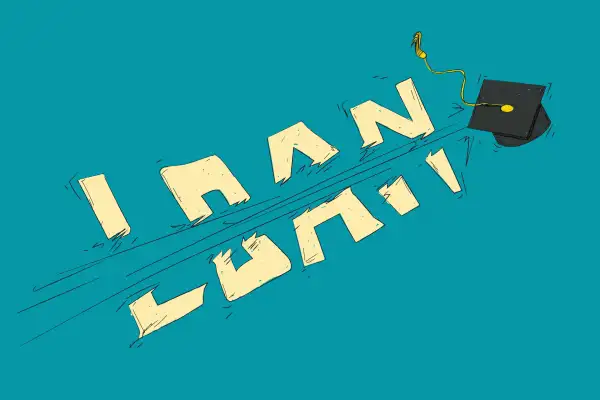The Duty of Credit History in Protecting Small Business Loans for Entrepreneurs
In the competitive landscape of entrepreneurship, safeguarding a bank loan frequently rests on the crucial aspect of credit history. These ratings work as a numerical representation of a business owner's credit reliability, influencing loan providers' decisions and the terms used. A greater credit history can open doors to favorable financing conditions, while a lower rating might offer considerable obstacles. What specifically impacts these ratings, and how can business owners purposefully improve them to enhance their possibilities of safeguarding vital financing? The response to these concerns hold the secret to unlocking possible development chances for local business.
Understanding Credit History
Credit history are essential mathematical representations of an individual's credit reliability, acting as a pivotal element in financial decision-making for lenders. These scores are stemmed from an extensive evaluation of a person's credit report, including elements such as repayment history, debt use, length of credit report, new credit score accounts, and types of credit history used. Typically varying from 300 to 850, greater ratings represent lower danger to lenders, while lower scores suggest higher danger.
The computation of credit report is executed by credit report bureaus making use of exclusive algorithms, with the most extensively identified designs being FICO and VantageScore. Each model might evaluate aspects slightly in a different way, yet they all objective to give a constant action of credit rating danger. A solid credit report mirrors the individual's integrity in taking care of financial debt, making timely payments, and preserving a healthy and balanced equilibrium in between credit score made use of and offered credit history.
It is essential for people and company owner to recognize their credit score scores, as these figures can have far-ranging implications beyond individual finance. On a regular basis keeping an eye on one's credit record, fixing inaccuracies, and taking on audio financial behaviors can dramatically improve credit report, consequently improving the individual's overall financial account and creditworthiness.
Significance for Finance Approval
Comprehending one's credit report score is foundational, as it plays a considerable function in the procedure of loan approval for tiny companies. Lenders use debt scores as a primary metric to analyze the credit reliability of applicants.
As little services commonly require prompt accessibility to funds for development and sustainability, preserving a durable credit report rating becomes important. Hence, understanding and handling one's credit scores score is a crucial part of preparing for car loan applications and achieving service success.
Aspects Impacting Scores
Numerous elements contribute to the determination of a credit history rating, each playing an essential role in shaping an individual's credit rating account. A high ratio of utilized credit history to offered credit can suggest monetary overextension, negatively impacting creditworthiness.
Size of credit report history likewise factors right into credit report estimations, with a longer credit rating generally seen a lot more favorably. This statistics gives understanding right into the individual's lasting monetary behavior, using lending institutions a more comprehensive point of view on their credit report monitoring skills. In addition, the kinds of credit history in use are considered, as a mix of charge account, such as revolving bank card and installment loans, can demonstrate the capability to manage different economic commitments.
Lastly, recent credit scores questions might influence ratings (pre approval student loans). Constant applications for new credit rating can show monetary distress, hence adversely influencing ball game. Each of these elements is critical in the thorough assessment of a debt rating, influencing an entrepreneur's capacity to safeguard a bank loan
Improving Your Credit Rating
Enhancing one's credit history belongs to nurturing a yard; careful attention to vital areas can generate substantial enhancements. To begin, making sure timely settlements on all charge account is vital. Repayment background makes up a considerable section of a credit history; therefore, establishing automated suggestions or payments can help keep consistency. Additionally, lowering debt levels is necessary. High credit use proportions, or the amount of credit score made use of about the credit line, can adversely impact ratings. Objective to maintain usage listed below 30% of total available credit scores.

Last but not least, maintaining older charge account can positively influence the average age of credit scores, which is one more consider racking up models. While new credit report queries must be reduced to avoid short-lived rating dips, liable credit monitoring over time will naturally result in rack up renovation, hence enhancing qualification for favorable bank loan terms.
Alternative Funding Choices
Business owners with less-than-ideal debt ratings may find these alternatives not only extra available however also tailored to their unique business needs. These systems commonly use quicker approval processes and even more adaptable terms than traditional banks, typically considering factors past credit report ratings, such as service efficiency and money flow.
Another feasible alternative consists of crowdfunding, where business owners can increase funding from a huge pool of small capitalists using platforms like Kickstarter or Indiegogo. This method not only supplies funds yet likewise confirms organization concepts with straight engagement with potential clients. In addition, microloans, commonly supplied by nonprofit companies, provide to small companies and startups. They offer smaller sized loan quantities with reduced rates of interest, making them perfect for More about the author entrepreneurs that require limited capital.
Invoice funding and merchant cash money advancements are additionally worth considering. The former includes marketing superior billings to a loan provider at a discount, while the latter offers a bear down future sales. Both choices can view publisher site enhance money circulation without the stringent credit scores demands of conventional car loans.
Conclusion

These scores are obtained from a detailed analysis of an individual's credit scores history, encompassing elements such as settlement background, credit history application, size of credit score history, brand-new credit scores accounts, and kinds of credit used (pre approval student loans). A strong credit scores score mirrors the person's integrity in taking care of financial obligation, making timely settlements, and maintaining a healthy and balanced balance between debt utilized and readily available credit report
